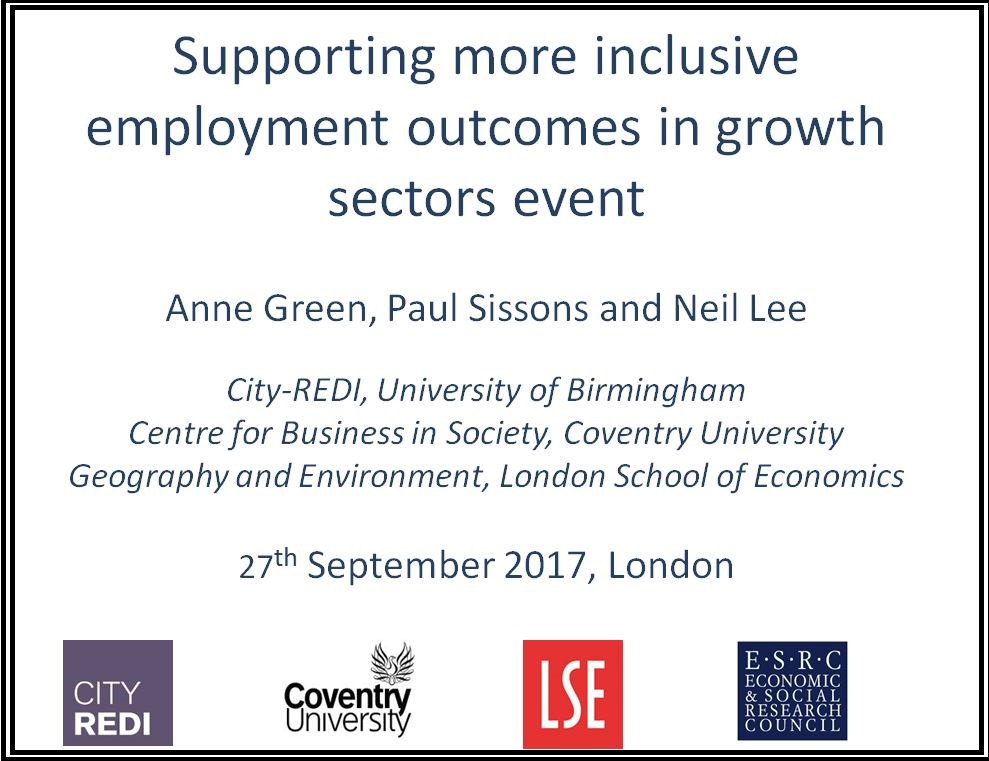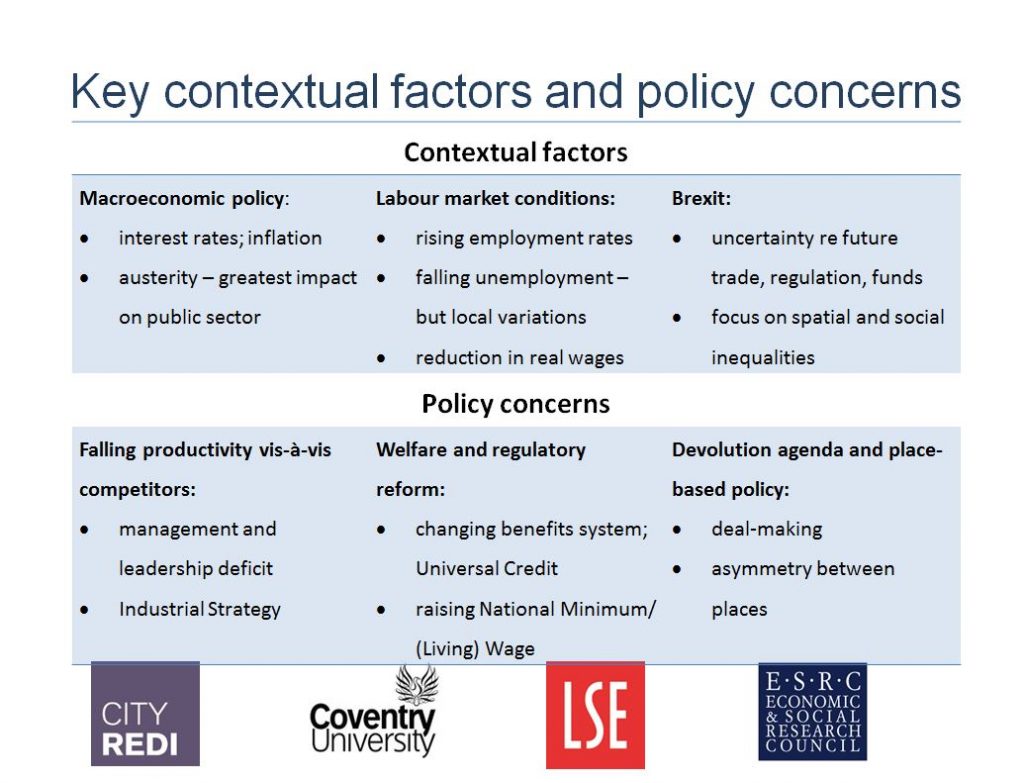 In National Inclusion Week and as part of The Work Foundation’s autumn event series, on 27th September City REDI’s Anne Green, with Paul Sissons from Coventry University and Neil Lee from the LSE, presented findings and discussed policy implications from their ESRC-funded research project on Harnessing Growth Sectors for Poverty Reduction: What Work to Reduce Poverty Through Sustainable Employment with Opportunities for Progression.
In National Inclusion Week and as part of The Work Foundation’s autumn event series, on 27th September City REDI’s Anne Green, with Paul Sissons from Coventry University and Neil Lee from the LSE, presented findings and discussed policy implications from their ESRC-funded research project on Harnessing Growth Sectors for Poverty Reduction: What Work to Reduce Poverty Through Sustainable Employment with Opportunities for Progression.
Traditionally employment has been seen as a key route out of poverty. But with an increasing prevalence of in-work poverty and a growing polarisation between higher and low paid jobs the policy debate on labour market inclusion is shifting away from entry into ‘any job’ to questions of how to support in-work progression out of poverty and raising the quality of jobs. There are several reasons why it might make sense to focus policy on growth sectors:
- They generate new employment opportunities – for individuals out of work and in work to move into
- They offer opportunities for business support and for integrated strategies for economic development and skills support
- Because fast growing sectors may have labour and skills shortages they may engage with skills provision
- They may also face retention challenges, so offering an opportunity for progression policies
Analyses of the Labour Force Survey, the Family Resources Survey and Understanding Society to explore the relationship between growth sectors, pay and poverty shows that:
- Being in employment is not a guarantee of moving out of poverty
- There are significant sectoral effects in analyses modelling low pay and poverty once individual factors have been accounted for – especially in the hospitality, wholesale and retail and care sectors
- Household poverty persists in some sectors characterised by low pay despite there being two earners in the household
- Some sectors better facilitate transitions out of low pay than others
- Patterns of sectoral growth and decline matter for poverty outcomes
Yet employment projections indicate a continuing growth in sectors associated with low pay.
Reviews of national and international evidence on employment entry, in-work progression and job quality in growth sectors reveal a body of policy analyses on ‘what works’ for policy interventions on employment entry but much less material on in-work progression. Job quality is widely studied, but the evidence base is disparate. However, available evidence suggests that policy can be designed to tackle employment entry and progression outcomes jointly and that there are potential benefits of a sector-focused approach to progression.
While there are no ‘silver bullets’ there are plenty of opportunities for action by local economic development partnerships, local authorities, third sector organisations, employment services, careers guidance professionals, education and training providers, employers (including anchor employers), employer bodies, trade unions and sector networks to take action to promote inclusion and progression in better quality work. These include:
- Local stakeholders working together to develop place-based industrial policy which addresses the issues of job quality in large employment but low-wage sectors
- Adopting a ‘dual customer’ approach (i.e. working with individuals and employers for their mutual benefit) to develop and promote employment entry and in-work progression activities in sectors such as health and social care and manufacturing
- Development of procurement policies that extend beyond employment entry and ensure that suppliers of goods and services provide quality jobs
- Provision of training to support under-represented groups to gain access to sectors typified by good opportunities for progression and higher employment quality
- Ensuring local provision of careers advice and guidance to support individuals to progress by moving jobs where existing opportunities are constrained.
For an extended summary of key findings and policy implications from the research click here.
To sign up to our blog mailing list, please click here.

